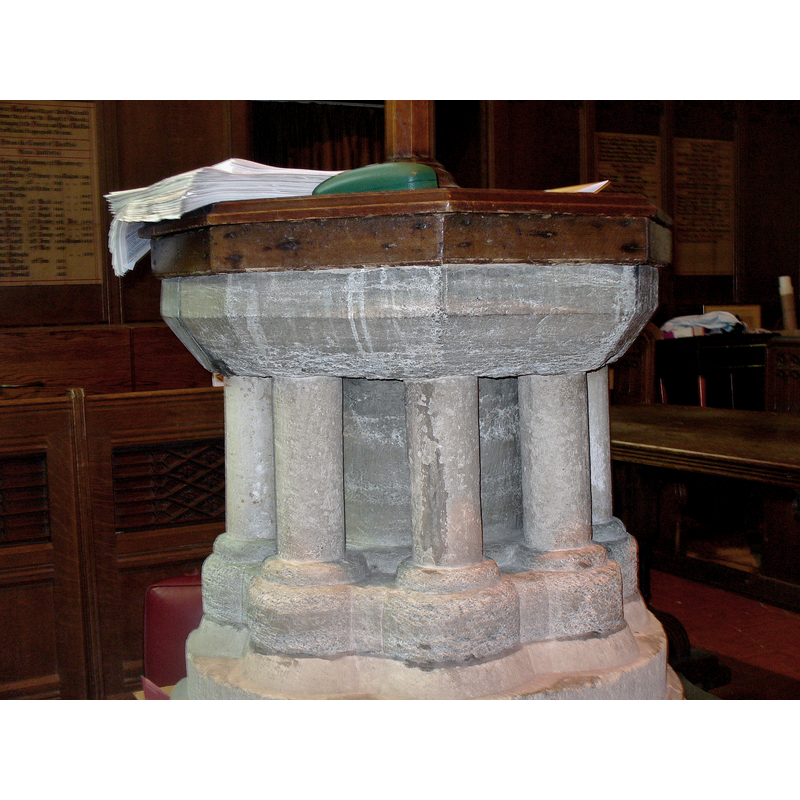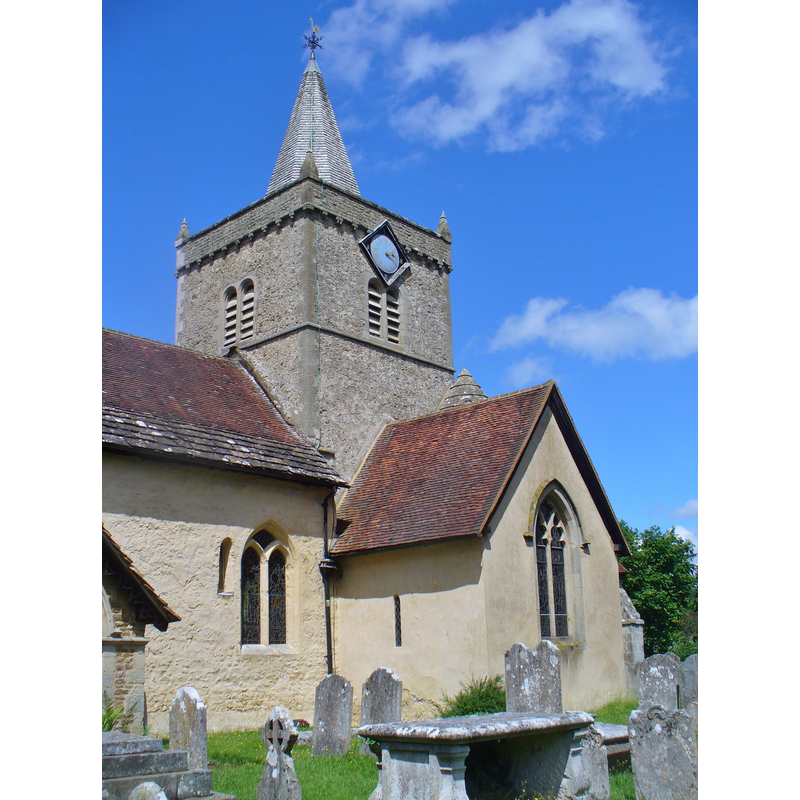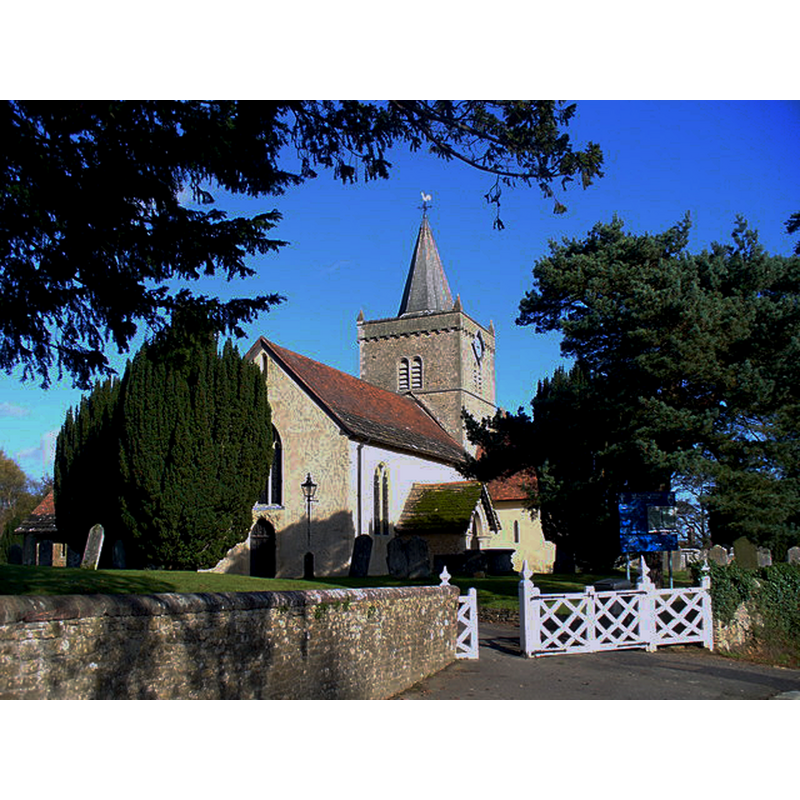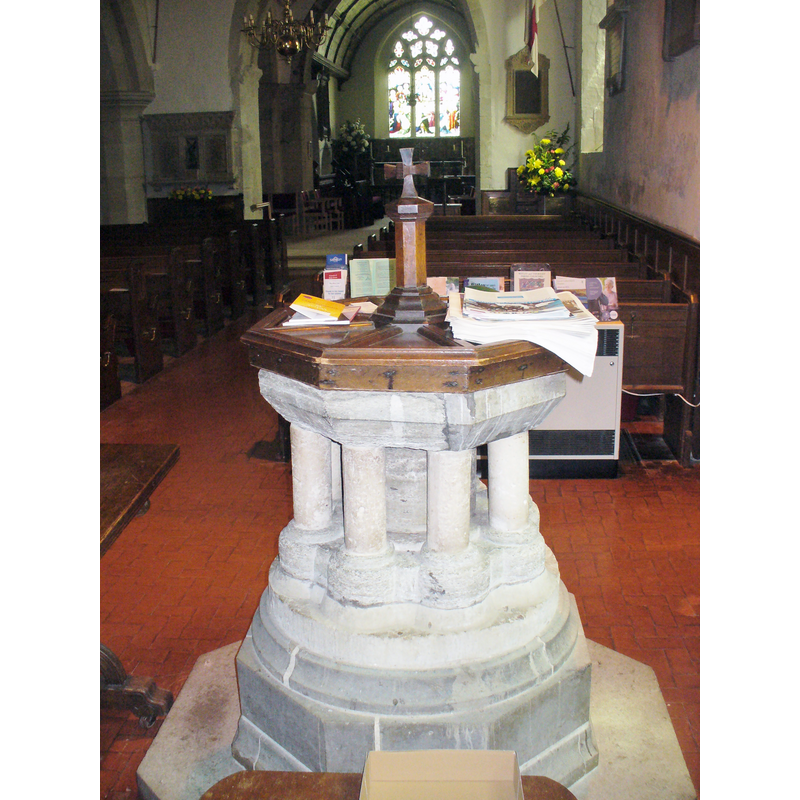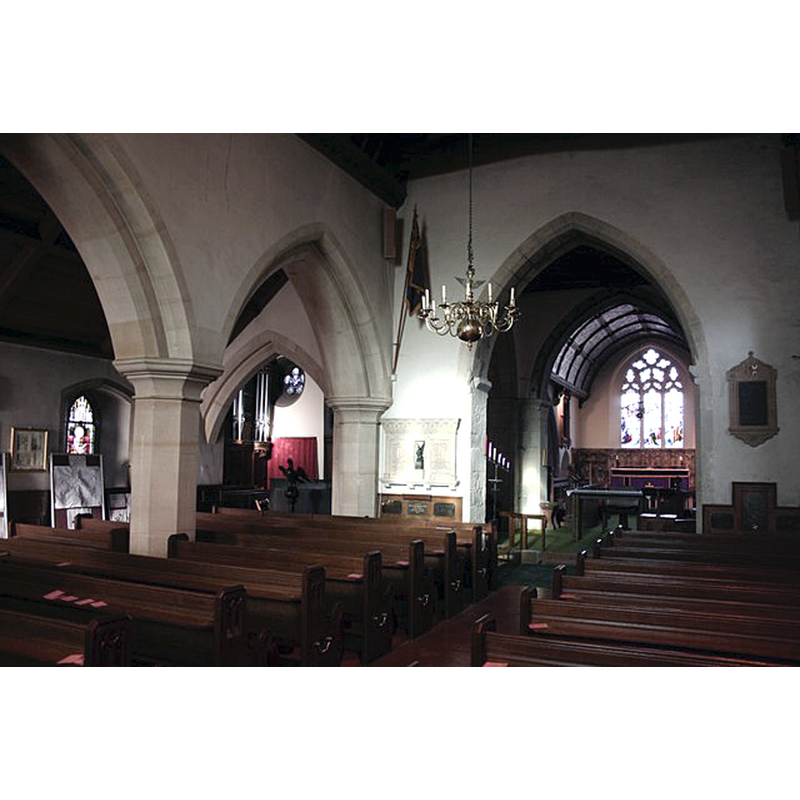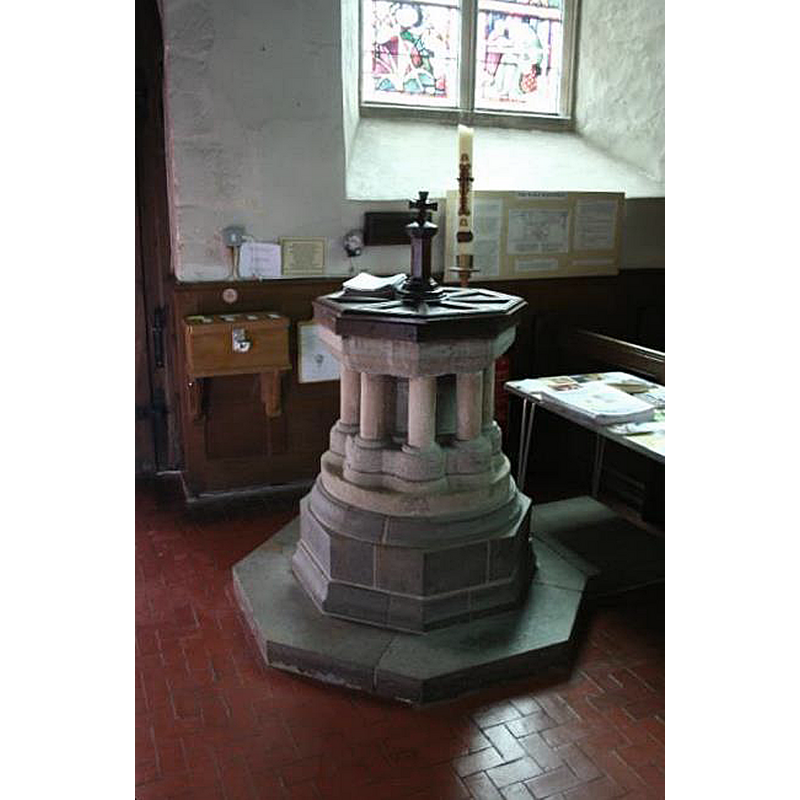Witley / Whitle / Whitlei / Witle / Witlei
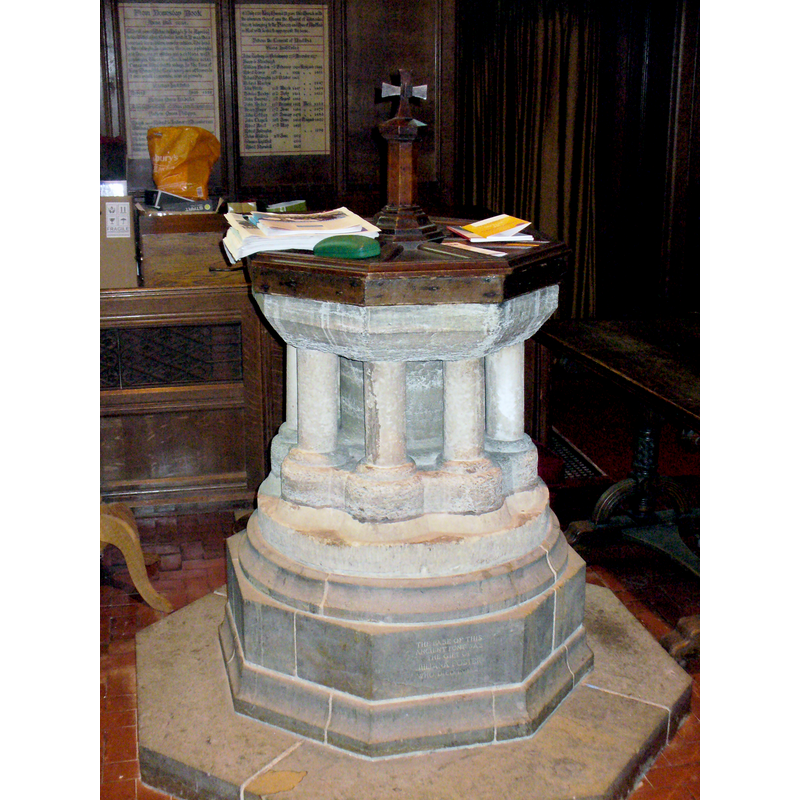
Image copyright © Colin Smith, 2016
Image and permission received (e-mail of 23 August 2016)
Results: 7 records
view of font and cover
design element - architectural - column - 8
view of church exterior - northwest end
view of church exterior - northeast view
Scene Description: Source caption: "All Saints Church, Witley. Cruciform Norman church built on the site of a Saxon church. It contains relics from the time of the Duke of Clarence, Edward IV's brother - the Clarence reported to have been drowned in a butt of Malmsey wine."
Copyright Statement: Image copyright © Colin Smith, 2009
Image Source: digital photograph taken 7 November 2009 by Colin Smith [www.geograph.org.uk/photo/1571517] [accessed 15 October 2015]
Copyright Instructions: CC-BY-SA-2.0
view of font and cover in context - west side
view of church interior - nave - looking northeast
Copyright Statement: Image copyright © Richard Croft, 2008
Image Source: digital photograph taken 12 March 2008 by Richard Croft [www.geograph.org.uk/photo/725996] [accessed 15 October 2015]
Copyright Instructions: CC-BY-SA-2.0
view of font and cover in context
Copyright Statement: Image copyright © The Parish of Witley, 2010
Image Source: digital photograph in the Parish website [www.allsaintswitley.org.uk] [accessed 5 August 2010]
Copyright Instructions: Permission received (email of 17 Aug 2010)
INFORMATION
Font ID: 07238WIT
Object Type: Baptismal Font1
Font Century and Period/Style: 13th century [altered?], Early English [altered?]
Church / Chapel Name: Parish Church of All Saints
Font Location in Church: Inside the church, centre aisle, W end
Church Patron Saint(s): All Saints
Church Address: Church Lane, Witley, Surrey, GU8 5PN
Site Location: Surrey, South East, England, United Kingdom
Directions to Site: Located on the A283, 3 km SW of Godalming, 10-11 km S of Guildford
Ecclesiastic Region: Diocese of Guildford
Historical Region: Hundred of Godalming [in Domesday]
Additional Comments: basin "renewed or recut" [cf. FontNotes] -- disappeared font? (the one from the Domesday-time church here)
Font Notes:
Click to view
There is an entry for Witley [variant spelling] in the Domesday survey [http://opendomesday.org/place/SU9439/witley/] [accessed 15 October 2015]; it mentions a church in it. Allen (1831) notes: "It appears there was a church at Witley in the time of the Saxons, of which mention is made in the record of Domesday [...] At the west end of the nave is an octagon font, the divisions almost obscured by time." [NB: presumably the 'divisions' refers to the joints of the stone parts of the font]. Noted in Brayley (1850): "The font, which is octagonal in form, is supported by a large central and eight smaller columns." a letter to the editor of The Gentleman's Magazine (issue of September 1863, vol. 215: 354) reports the font of the Early English period in similar terms. Listed in Cox & Harvey (1907) as a baptismal font of the Early English period. The Victoria County History (Surrey, vol. 3, 1911) dates the nave of the church "from the last quarter of the 11th century", the jambs and shafts of the south doorway to ca. 1080. "The font dates from about 1250. Its octagonal bowl, which has been renewed or recut, rests upon a central drum and eight small shafts with moulded bases, standing upon a circular plinth." The font is now [2010] raised on a round-to-octagonal lower base, and an octagonal plinth, both modern. The wooden cover is octagonal and flat, with flat radiated panels on its upper surface, and a small-cross-on-a-pillar finial; modern.
Credit and Acknowledgements: We are grateful to Colin Smith and to Revd. Ann Fraser (OLM Curate) and the Parish of Whitley for their photographs of this church and font
COORDINATES
UTM: 30U 664498 5668966
Latitude & Longitude (Decimal): 51.148474, -0.648051
Latitude & Longitude (DMS): 51° 8′ 54.5″ N, 0° 38′ 52.99″ W
MEDIUM AND MEASUREMENTS
Material: stone
Font Shape: octagonal, mounted
Basin Interior Shape: round
Basin Exterior Shape: octagonal
LID INFORMATION
Date: modern
Material: wood, oak
Apparatus: no
Notes: [cf. FontNotes]
REFERENCES
- Victoria County History [online], University of London, 1993-. URL: https://www.british-history.ac.uk.
- Allen, Thomas, A History of the County of Surrey ; comprising every object of topographical, geological, or historical interest, London: Isaac Taylor Hinton, 1831, vol. 2: 79
- Brayley, Edward Wedlake, A topographical history of Surrey, London: G. Willis, 1850, vol. 5: 257
- Cox, John Charles, English Church Furniture, New York: E.P. Dutton & Co., 1907, p. 221
